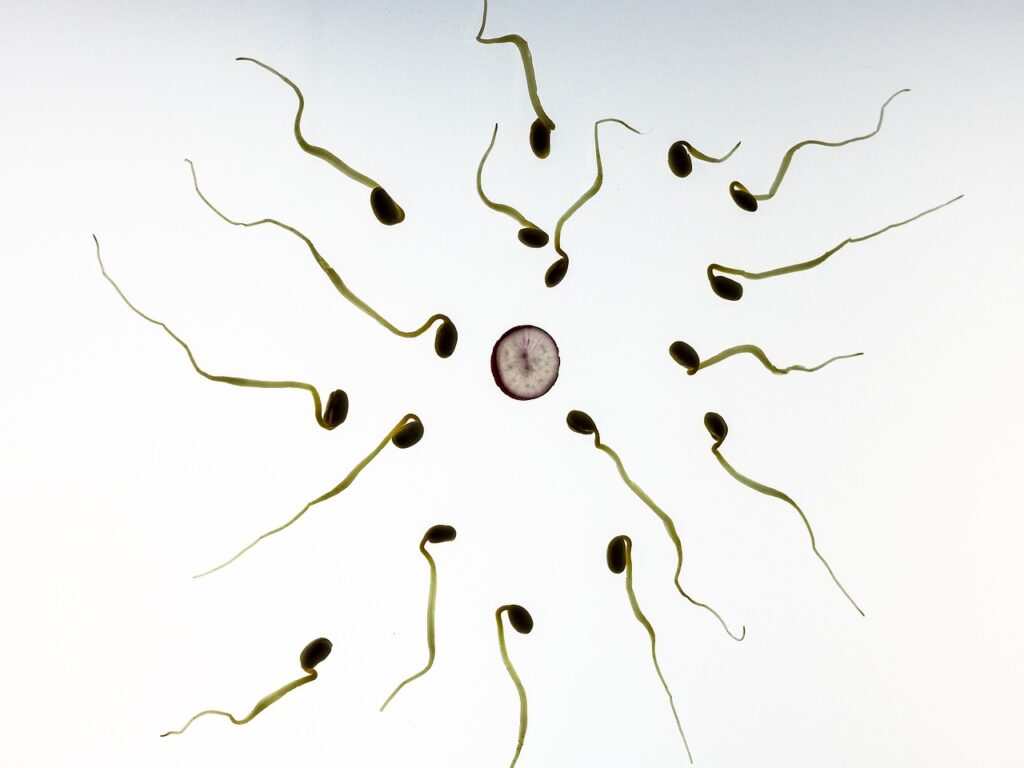Are you interested in making a meaningful contribution to society and earning some extra income at the same time? Becoming a sperm donor in India can be a fulfilling and rewarding experience. In this article, we will guide you through the process of becoming a sperm donor and provide you with all the information you need to know.

What is Sperm Donation?
Sperm donation is the process of providing semen, which contains sperm, to help individuals or couples who are struggling with infertility or genetic disorders to conceive a child. It is an act of generosity that can make a significant impact on someone’s life.
Requirements to Become a Sperm Donor In India
Before you consider becoming a sperm donor, it is important to understand the requirements you need to meet. These requirements may vary slightly from one sperm bank to another, but here are some common criteria:
Age: You must be between the ages of 18 and 45.
Health: You should be in good overall health, both physically and mentally.
Sperm Quality: You must have a high sperm count and good sperm quality.
Genetic Disorders: You should not have any genetic disorders or serious medical conditions.
Medical Tests: You must be willing to undergo various medical tests and screenings.
Commitment: You should be willing to commit to the donation process for a specified period.

The Process of Becoming a Sperm Donor
If you meet the necessary requirements, you can start the process of becoming a sperm donor. Here is a step-by-step guide:
Step 1: Research and Choose a Reputable Sperm Bank
It is crucial to select a well-established and trustworthy sperm bank to ensure your safety and the ethical handling of your donation. Do thorough research and consider factors such as reputation, success rates, and the compensation offered.
Step 2: Complete the Application
Once you have chosen a sperm bank, you will need to fill out an application form. This form will ask for your personal and medical history, family background, lifestyle habits, and other relevant information. Be honest and provide accurate details.
Step 3: Medical and Genetic Screenings
After submitting your application, the sperm bank will conduct various medical and genetic screenings. These screenings may include blood tests, physical examinations, and genetic counseling. The purpose is to ensure the safety of the recipient and the quality of the donated sperm.
Step 4: Semen Analysis
If you pass the medical and genetic screenings, you will be asked to provide a semen sample for analysis. The sample will be examined for sperm count, motility, and morphology. It is essential to maintain abstinence for a few days before the analysis to ensure accurate results.
Step 5: Legal Agreements and Contracts
Once your semen analysis is satisfactory, you will be required to sign legal agreements and contracts with the sperm bank. These documents will outline your rights, responsibilities, and the terms of compensation.
Step 6: Regular Donations
Once you have completed all the necessary steps and signed the agreements, you can start making regular donations. The frequency and duration of donations may vary depending on the requirements of the sperm bank.
Compensation and Benefits
As a sperm donor, you will receive compensation for your time and effort. The amount of compensation can vary and is usually determined by factors such as the demand for donor sperm, the quality of your sperm, and the policies of the sperm bank. Additionally, some sperm banks may offer benefits such as free medical check-ups and genetic testing.
Confidentiality and Anonymity
Confidentiality and anonymity are crucial aspects of sperm donation. In India, the identity of the sperm donor is usually kept confidential, and the recipient parents are not provided with any identifying information. However, it is essential to understand the specific policies of the sperm bank regarding anonymity.
Legal and Ethical Aspects
Sperm donation is legal in India, provided it is done through reputable sperm banks that adhere to the ethical guidelines and regulations set by the Indian Council of Medical Research (ICMR). However, it is essential to be aware of the potential ethical issues related to sperm donation.

Sperm donation banks in India
- Rotunda – The Center for Human Reproduction (Mumbai): Rotunda is a renowned fertility clinic in Mumbai that offers sperm donation services along with a range of other reproductive treatments.
- Indian Spermtech (Delhi): Indian Spermtech is a leading sperm bank based in Delhi, providing high-quality sperm donation services to individuals and couples seeking fertility solutions.
- SpermDonorIndia (Hyderabad): Located in Hyderabad, SpermDonorIndia is a trusted sperm donor bank offering a comprehensive range of services related to sperm donation and assisted reproduction.
- Sperm Bank India (Bangalore): Sperm Bank India, situated in Bangalore, is dedicated to providing safe and reliable sperm donation services, adhering to strict quality standards and ethical practices.
- Nova IVI Fertility (Multiple Locations): Nova IVI Fertility is a network of fertility clinics with locations across India, including cities like Mumbai, Bangalore, and Hyderabad, offering sperm donation services among various other fertility treatments.
- Morpheus ART Fertility Center (Ahmedabad): Morpheus ART Fertility Center, located in Ahmedabad, is a reputed fertility clinic providing comprehensive fertility solutions, including sperm donation services.
FAQs @Sperm Donor In india
Here are some frequently asked questions regarding sperm donation in India:
Is sperm donation legal in India?
Yes, sperm donation is legal in India. However, it is crucial to work with reputable sperm banks that adhere to ethical guidelines and regulations
Can I donate sperm if I have a family history of genetic disorders?
Sperm banks have stringent criteria regarding genetic disorders. If you have a family history of genetic disorders, it is best to consult with the sperm bank and undergo genetic counseling to determine your eligibility.
How often do I need to make sperm donations?
The frequency of sperm donations can vary depending on the sperm bank’s policies.
Can I donate sperm anonymously?
Yes, in India, sperm donation is typically anonymous. The identity of the sperm donor is kept confidential.
Can I donate sperm if I am an international student in India?
Some sperm banks may have specific requirements for international students. It is advisable to contact the sperm bank directly to inquire about their policies for international donors.
Highest Paid Sperm Donors: Myth or Reality?
The notion of highest-paid sperm donors often garners attention and curiosity. While it is true that some sperm donors may receive higher compensation ( sperm donor in India) based on specific criteria such as exceptional health, genetic background, or previous successful donations, it’s essential to debunk the myth that sperm donation is solely driven by financial gain. Most donors are motivated by altruism and the desire to help others build families rather than monetary rewards.
In India, the cost of donor sperm can vary depending on various factors. Typically, the price for a vial of donor sperm can start anywhere between Rs. 8,000 to Rs. 10,000. However, this cost may increase based on specific criteria such as the donor’s characteristics, medical history, and genetic background. ( sperm donor in India) In some cases, the price may go up from Rs. 12,000 to Rs. 15,000 for a vial of sperm,
Conclusion
Becoming a sperm donor in India is a noble act with a profound societal impact. By meeting the necessary requirements, undergoing screening processes, and making regular donations, you can help individuals or couples achieve their dream of parenthood. If you believe you meet the criteria and are prepared to make a difference, consider exploring the option of becoming a sperm donor.













